My Journey to Becoming a Voluntourism Cynic
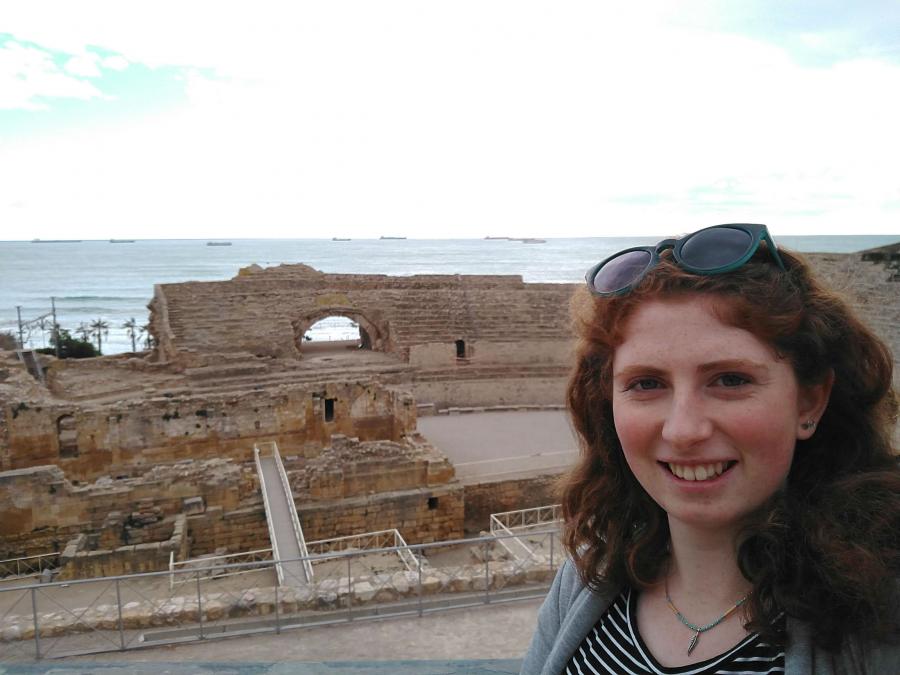
Ruthie, who is studying International Development at the University of Sussex in the UK, first experienced the pull of volunteering during her high school years. Her initial excitement soon turned to doubt and concern as she dug deeper into what would be involved in the four-week trip, which included spending time in an orphanage. She decided there and then she would not go.
"I completely understood why my classmates wanted to go - essentially it was a low cost holiday to Bolivia, helping supposedly some of the poorest children in the world, and a promise to enhance your CV and gain valuable experience...as time went on I began to realise that this once in a lifetime opportunity for Western pupils is by no means a once in a life-time opportunity for the children in these orphanages."
Five years on and Ruthie dedicates her time to advising fellow students who are planning to volunteer overseas to think carefully about their intentions and the potential impact - positive and negative - they could have on the local community.
Read Ruthie's journey to becoming a voluntourism cynic
Empowering Travellers and Tourism Businesses
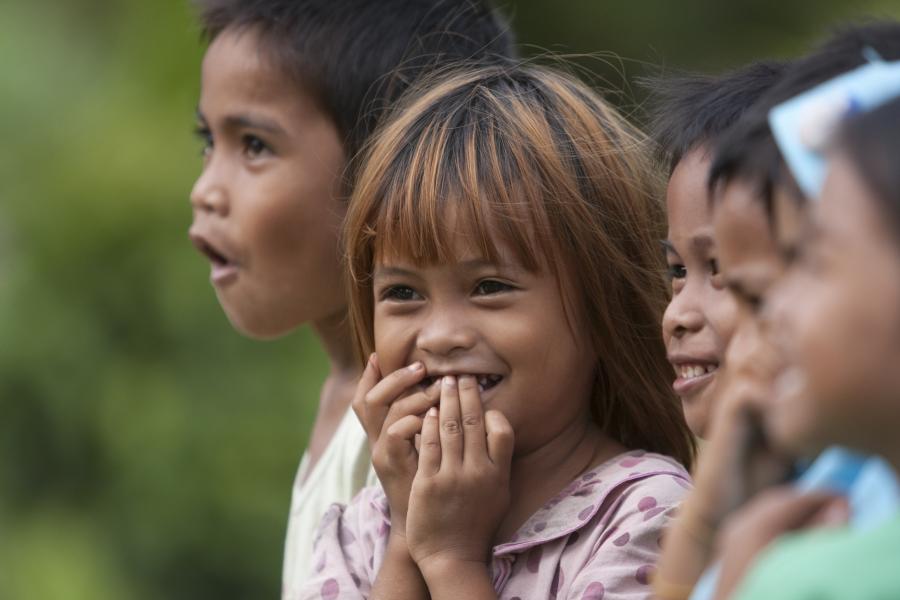
When Eliza was a teenager, her dream was to volunteer in orphanages all over the world. So when she turned 18, she packed her bags and headed to Guatemala to volunteer in an orphanage. Her first task was to sort through a container of goods that had been donated to the orphanage from the USA. Inside the container was a pair of snow skis. She remembers realising in that moment that she was a bit like the skis: very well intentioned, but not much use in the context of a Guatemalan orphanage. At the time, she spoke very little Spanish and had minimal experience working with children.
This was when she first started to become aware that making the world a better place through orphanage volunteering was more complex than she had anticipated. Fast-forward a few years and Eliza carried out her Masters research looking into best practice in volunteer tourism, worked for a volunteer-receiving organisation in Peru, and then worked for a volunteer-sending organisation in New Zealand. During this time, she placed many volunteers in orphanages.
In 2013, Eliza stepped away from her work in voluntourism and co-founded GOOD Travel with three other women from Peru, South Africa and USA. They wanted to offer an alternative to voluntourism for people seeking to have a positive social, economic and environmental impact on the places they visit. Through GOOD Travel's work with ChildSafe and Rethink Orphanages, Eliza and the GOOD Travel team have come to understand the importance of taking a pro-active approach to child protection.
So 18 years later, Eliza's dream has changed: from wanting to volunteer in orphanages all over the world to wanting to help end volunteering in orphanages. Through GOOD Travel, she will be sharing the volunteering checklist from ReThink Volunteering and encouraging all GOOD travellers to watch The Love You Give. She believes that the key lies in empowering travellers and tourism businesses to slowly and strategically find alternatives for supporting marginalised children and their families.
The Buzzword in Orphanage Tourism
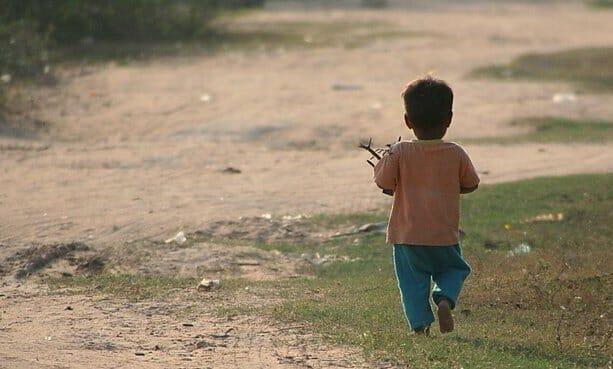
CHILDREN IN FAMILIES
One of our partner organisations and creator of the orphanage volunteering alternative Rok Kern programme, Children in Families was invited to speak about volunteering at an International School in Phnom Penh.
Following, this one student, Annie*, shared her thoughts in a blog about the 'buzz' you get from volunteering in an orphanage. She invites other volunteers to think beyond the 'buzz' to consider the emotional impact on the children and to channel their good intentions and excitement about volunteering into being catalysts for change.
"The important thing to remember is that someone else is the recipient of those emotions. That feeling of joy and bonding that is felt when seeing children’s’ faces, upon learning their names, the children feel that too. And then that connection is torn away after a week, perhaps a month – again, and again, and again. A year later, it is doubtful that volunteers will remember their names, their faces. By then, the “buzz” has faded. Perhaps their eyes were opened, perhaps it influenced the way they saw the world. But the children left behind? They remember the visitors, as they remember the others – the ones who left."
Read Annie's* full blog post on Children In Families' website.
*Names have been changed for privacy reasons
My Regret at Volunteering in an Orphanage
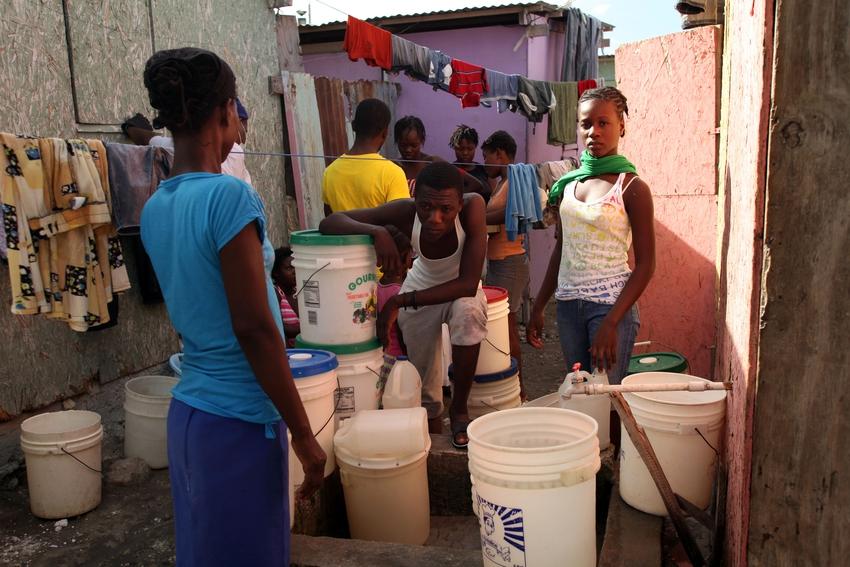
LUMOS
Orphanage volunteers may have the best of intentions - but they may unwittingly be doing more harm than good, as one ex-volunteer discovered.
At the age of 17, the idea of volunteering in an orphanage seemed like a rewarding, ethical and helpful thing to do. She found an organisation to travel with and booked on a trip to Kenya.
Looking back, she now questions the ease at which was able to sign up to volunteer in an orphanage, and the unsupervised access, without any child protection checks, to vulnerable children. Today, she feels that her trip was form of exploitation - not just of the children in the orphanages but herself - and her good intentions - too.
Read this former orphanage volunteer's full blog post on Lumos' website.
Strengthening Family-Based Care in Kenya
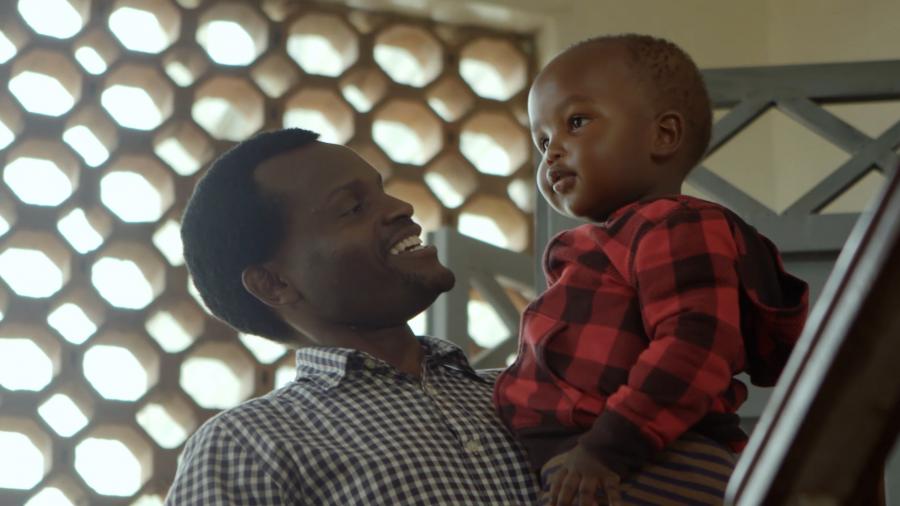
CHILD IN FAMILY FOCUS
If you’ve watched The Love You Give, you’ll recognise Peter Kamau and his gorgeous son Jedd, who featured in this docustory about orphanages.
Following the death of his parents and separation from his siblings, Peter was raised in an institution in Kenya. The experience had such a profound effect on him that he co-founded Child In Family Focus, an organisation which champions family based care for orphaned and vulnerable children. Even though Kenya now has a moratorium on the registration of new residential care institutions, the country remains one of the most popular destinations for orphanage volunteers.
Peter’s message to people who want to support children in Kenya is not to volunteer in an orphanage but to direct efforts in ways that will help to alleviate poverty,keep families together and support alternative family care placements for abandoned children whose families or origin are unknown and cannot be traced.
As he explains in The Love You Give, the main reason for children to be placed in an orphanage is poverty with parents struggling to make ends meet. Even for a child whose parents are deceased, there are often relatives who could care for the child, enabling them to stay in their own communities, rather than a childhood spent in institutional care.
“Families need to be empowered so that they can sustainably care for their children,” says Peter.
Peter’s work with Child in Family Focus is concentrated on reducing Kenya’s reliance on institutional care, working with the Government Department of Children’s Services and other child protection stakeholders to encourage the use of family-based care options such as kinship care, foster care and adoption.
Find out more about Child in Family Focus.
How Foster Care is Changing Lives
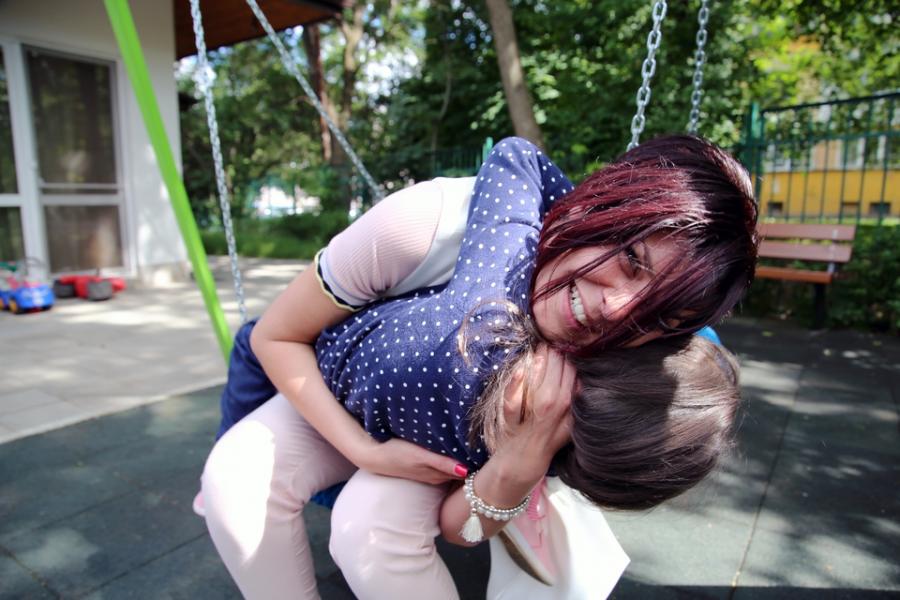
LUMOS
Foster care is changing the lives of vulnerable children in Bulgaria. When Renetta met her foster child Ronie*, who has cerebral palsy, the girl had spent most of her young life in an institution. At age six, she could not walk and could barely talk.
In just one year, the change in this tiny, sunny girl has amazed everyone around her, her potential unlocked by the love and care of a family environment.
Renetta and Ronie were brought together by Lumos' partner For Our Children Foundation, a non-profit child protection organisation and the leading provider of foster care in Bulgaria since it's establishment in 1997. The foundation continues to support them both, and Ronie makes new progress every day.
Read the full story and watch a video on Lumos' website.
Abuse, Neglect and Deceit: A Volunteer's Account
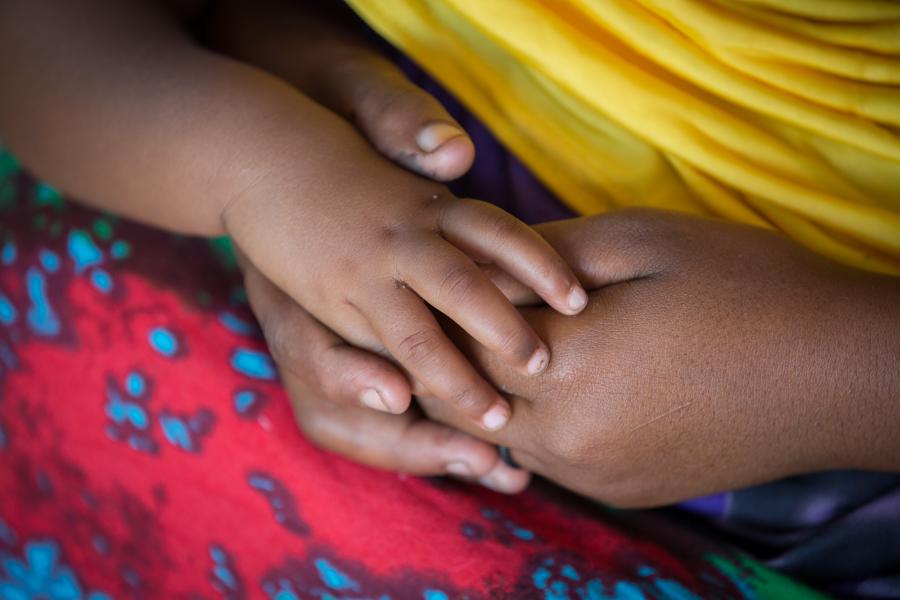
LUMOS
A volunteer shares her experience of volunteering in an orphanage in Haiti, where, she says, she witnessed children intentionally malnourished in an attempt to motivate visitors to the orphanage to donate more - which was at least $350 per visitor.
She describes how children were force-fed pig feed and deprived of love and one-to-one attention - whilst western donors raised money for projects for the orphanage and sent money and goods to the orphanage director, which were simply sold on at the local market.
You can read the full story via our partner Lumos
Creating Advocates for Family-Based Care
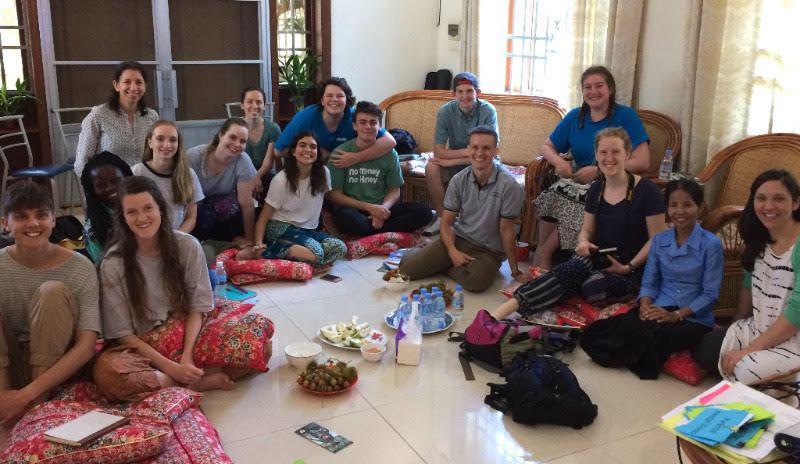
CHILDREN IN FAMILIES
Children in Families, an NGO based in Cambodia, has developed a new programme as an alternative to orphanage volunteering. The programme, called Rok Kern, is a Khmer phrase which means 'to come and see', a concept around which the programme is built. Cambodia remains one of the most popular destinations for orphanage volunteers, and has seen an increase in the number of orphanages established to meet the demand for volunteers.
Children in Families provides family-based care, community development and educational support to strengthen families and prevent the unnecessary institutionalisation of children. Through its Rok Kern program Children in Families invites participants to learn about and experience Cambodian culture and get a behind-the-scene look at how family-based care organisations are supporting families, dispelling the myth about the need for orphanages.
Find out more about Children in Families and its Rok Kern
Inspiring Young People
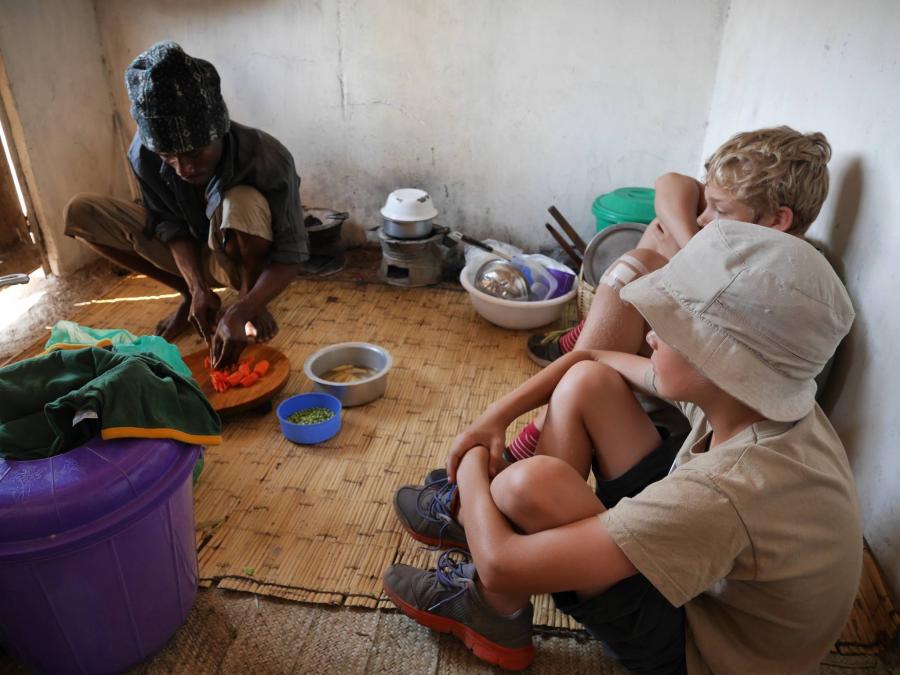
STC EXPEDITIONS
UK-based STC Expeditions is one of a growing number of travel and volunteer-sending organisations which recognises the problems with orphanages and orphanage volunteering.
Founded in 2006, STC Expeditions, which organises school expeditions and educational tours, places the needs of local communities and creating a mutual learning experience between locals and students at the heart of its business operation.
The company has always maintained a strong stance against orphanage volunteering, although as STC Director Adrian Ferraro explains, this isn't always popular with schools. "Orphanage volunteering often appeals to schools researching overseas volunteering opportunities for their students. We take our time to discuss with our clients the pros and cons and direct them towards volunteering projects which are of long-term benefit to the community."
Find out more about STC Expeditions.
Check out the growing list of travel and volunteer-sending organisations who do not run orphanage volunteering projects.
Empowering Care Leavers to Lead a Meaningful Life

KENYAN SOCIETY OF CARELEAVERS
Samora Asere and Ruth Wacuka - who shared stories through the Love You Give film about the impact on their lives of growing up in an orphanage -advocate for change through the Kenyan Society of Care Leavers (KESCA). Samora is chairperson and Ruth is secretary to the Society.
KESCA was first established in 2009 by and for young people who grew up in a residential care institution to address the challenges young people face when they leave care and help them deal with the traumas of their past.
Children who grow up in an orphanage are at a much higher risk of becoming victims of violence, trafficking and exploitation. They are also at a much higher risk of homelessness, mental health challenges and suicide.
Support is provided through personal development programs and partnerships with like-minded individuals, groups and NGOs. To date, more than 200 care leavers have been supported. KESCA also advocates worldwide against the unnecessary institutionalisation of children, ensuring that the voices of young people are heard and listened to.
Find out more about KESCA's work and how you can support them.
Philippa Felt Like a Spare Part
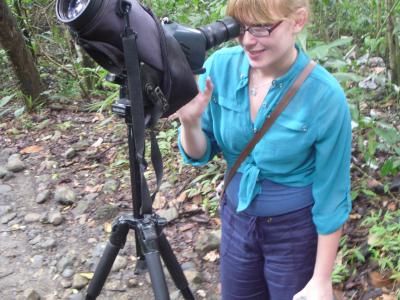
PHILIPPA'S STORY
When I chose to take a volunteering trip to an orphanage in Costa Rica, it wasn't actually because I wanted to do good, particularly, but because I wanted to really master Spanish. Residential language schools were too expensive, but voluntourism seemed to offer a (relatively) affordable way to really immersive myself in the language by volunteering during the day, staying with a family in the evenings, and travelling at the weekends.
Prior to my trip, I hadn't given any thought to the negative impacts of voluntourism. I think it started getting negative press in mainstream contexts a year or so later, but my experience was really quite affecting and totally changed my outlook. For starters, I felt like I was really impinging on the families space. A family of five (three generations), they had a small three bedroom house, of which one was mine, one was the older brother's and mother, two daughters and a grandson shared the third. They were lovely, very welcoming and inclusive (relieved, I think, to have someone who spoke good Spanish) but I couldn't help feeling awkward about the amount of space I was taking up. They insisted on washing my clothes and cooking all of my meals, even when they didn't eat with me, which felt frankly colonial.
The orphanage itself was an eye-opener. Not because it was one of those dilapidated, neglectful environments that you do hear about, far from it; it was clean and welcoming, the staff clearly cared for the children, who were healthy and seemed happy. But the impact of the voluntourists was visible everywhere. I spent most of my time in the garden, which had a sheltered area for the children to do homework and play. This area was stacked in all corners with plastic boxes of toys brought by volunteers (because of course children in orphanages have nothing, right?) - I have never seen so many crayons in one place in my life, and that's coming from someone who has worked in nurseries. I added my plastic tea set and skipping ropes to the collection, never to be touched again. The staff didn't need me to help clean or prepare food, because that was their job. I could help out with homework now and again, but they didn't very much. I was at the orphanage for 3 hours a day in the week, and in the mornings I just sat in the house working on my Spanish grammar and or hanging out with volunteers on different programmes who were staying on the same street. I asked if I could go to the orphanage all day, but I wasn't allowed to as there was a different volunteer there in the morning. And besides, what more would there have been for me to do?
But the thing that really struck me was that the children couldn't be bothered to learn my name. I was just another 'Muchacha' who would swan in with another box of crayons and swan out again. Now, I have read quite a bit about the impact that short-term volunteers have on children's ability to develop healthy relationships, but even at the time that really hit me. Bearing in mind that most of these children weren't in fact orphans, but mostly had parents in prison or who, for whatever reason, were unable to care for them, they had undoubtedly already had a turbulent time regarding relationships with adults.
That's not to say it was the one and only time that I volunteered abroad. A year later, I learned a reasonable amount of Hindi before going to do an internship with a large charity in India, which I had hoped would be more structured and therefore I would be more useful. Not the case! Again, I found there wasn't actually anything for me to do and I was taking up space and food in already overcrowded homes in disadvantaged areas. This time, I had the confidence to say 'I am not being useful here', and I left my internship, instead, meeting with several different children's charities to see where I would have something to offer.
From 'Orphan' to Giving Hope to Others

MORGAN'S STORY
Morgan is a young Tanzanian who is passionate about providing support to those who are in most need. Morgan is a care leaver who was inspired to study social work by seeing the dedication of the caregivers at the institution at which he spent over 10 years of his life and the difference it made to the lives of him, and other young boys who were rescued from life on the streets. Prior to living in the care facility, Morgan ran away from abusive situations in his family to try and fend for himself on the streets of Arusha and Moshi at the tender age of 8 years. Morgan is in a unique situation from which he can share his experiences with other young people of street life and also raise awareness in the community about providing proper love and care to children.
In care Morgan experienced a tough childhood where he had to grow up fast and learn to fend for himself. He also experienced the difference that having a caring adult can have in a child’s life. His life at the children’s home was good, they were provided with a safe place, their basic needs, and even the occasional treats, things he might not have had access to in his own family. Still, he feels that children should not have to grow up in institutions if there is a way to work with their families and provide them support while they remain in their families. He has experienced the disconnect that comes from not fitting back in with your own family during and after exiting the institution. As well-meaning as the institution and caregivers were, they did not help mend the rift that separated him from his family in the first place. Sure, he visited them on holidays, but he was different, he was not one of them, he was a guest in their home for a short while. Even as an adult he has not been able to repair those relations. He has watched (and tried to help) some of his friends unable to cope with life after the institutions and simply go back to street living, drug use, inability to hold jobs, and poor decision making.
He firmly believes children belong in loving supportive families and not in institutions and strives to now give hope and courage to others.
